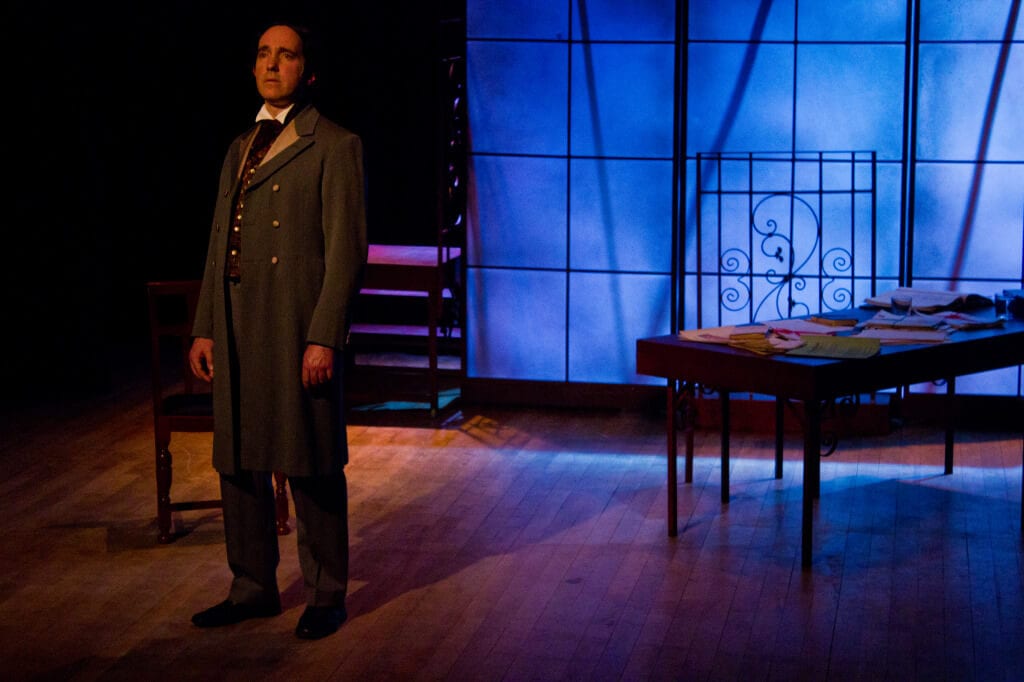Is there anything we don’t know about Oscar Wilde? asks John O’Connor, who – with Wilde’s grandson, Merlin Holland – has reconstructed the two trials that led to the utter ruin of the greatest celebrity in late Victorian England. The resulting play amply justifies the author’s belief that there is an awful lot we don’t know about the precipitate fall from grace of the man who, within a hundred days of the triumphant opening night of The Importance of Being Earnest, “found himself disgraced, bankrupt and sentenced to two years’ hard labour for gross indecency.”
We probably all do know that Wilde initiated his own destruction by suing the Marquess of Queensberry for criminal libel, after suffering the aristocratic insult that he was “posing as a somdomite (sic)”. Wilde’s liaison with ‘Bosie’, the Marquess’s younger son, Lord Alfred Douglas, had precipitated this insult. But most of us will have little idea what happened at the trial in which Queensberry was prosecuted, and Wilde was subjected to a withering cross-examination by Edward Carson (who later became leader of the Ulster Unionists – his statue greets the visitor who ascends the long avenue up to the Northern Ireland Parliament building at Stormont). Nor will we have appreciated the rapidity with which, immediately upon the collapse of that trial, Wilde was arrested and put on trial himself, for committing acts of gross indecency with several young men of lowly station.
The speeches of counsel, and the testimony of Wilde himself and of the rent-boys and blackmailers who testified against him, have been faithfully reconstructed from the transcripts of the libel trial and other contemporary accounts. They make fascinating courtroom drama, propelled by a tour de force of acting. In voice, appearance and demeanour, John Gorick as Wilde gives an entirely convincing portrayal of that elegant aesthete and raconteur. All the other roles, from barrister to bookie’s runner, from peer to chambermaid, are played by Rupert Mason and William Kempsell, by whom the numerous changes of costume and accent are carried out with seamless efficiency. That such a range of characters can be played, and played so well, by only two actors bodes ill for the thespian profession, if management considers this more generally to be a useful means of conserving resources!
The glee with which press and public turned on Wilde once his sexual prociivities had been exposed bears obvious comparison with the vitriol poured on disc jockeys, comedians and singers, as soon as they stand accused of the sexual activities that excite condemnation in our own day. Whether it be pederasty in 1895 or paedophilia in 1995, the combination of prurience and righteous indignation is the same. Wilde has become a hero in our time. Can it be that Rolf Harris will be hailed as a martyr a hundred years from now?

